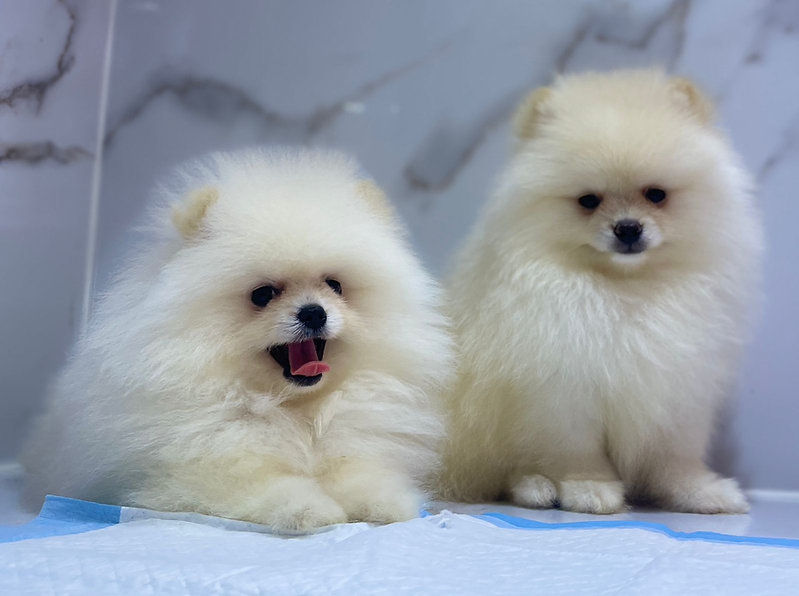Labrador: The Ultimate Guide to America's Favorite Dog Breed
- Petholicks

- Jan 31, 2024
- 6 min read
Updated: Jun 14
Introduction
We'll cover all you need to know about Labradors, one of the most popular dog breeds in America, in this extensive guide. For both present and potential Labrador owners, this article will offer priceless insights into everything from their history and origins to their temperament, training, and upkeep.
Origins and History
The history of labradors is extensive, dating back to their early days as working dogs in Canada's Newfoundland. Labradors were valued for their ability to recover nets and haul in fishing lines from frigid waters. They were originally developed to help fisherman. They have a mixed heritage of indigenous breeds and St. John's water dogs.
Early Origins
Labradors were introduced to England in the early 1700s, when their versatility as hunting partners was further improved. Their remarkable retrieving abilities and kind nature were highly valued by British nobility, which contributed to their widespread acclaim among the upper class.
Popularity in the United States
During the 20th century, labradors became quite popular in America and were one of the most registered breeds with the American Kennel Club. They became beloved by families all throughout the nation because of their pliability, flexibility, and loving disposition.
Physical Characteristics
Large to medium-sized dogs with an athletic physique and strong frame are labradors. Males are usually larger than females, standing between 21.5 and 24.5 inches at the shoulder and weighing 55 to 80 pounds.
Size
Labradors have a large head, powerful jaws, and expressive eyes on a well-balanced physique. Their strong necks give them strong shoulders and a broad chest, which gives them the strength required for retrieving duties.
Colours and Coat
The Labrador's short, thick coat, which is waterproof and water resistant, is one of its most distinguishing characteristics. They have three main colours—chocolate, yellow, and black—with different tones and patterns.
Unique Qualities
The thick tails of labradors taper towards the tip, giving them the nickname "otter" tails. Because of their webbed feet, they are excellent swimmers and skilled retrievers in aquatic sports.
Behaviour and Temperament
Because of their well-known outgoing and friendly disposition, labradors make excellent family and therapy dogs. They are among the most well-liked dog breeds in the world because of their enthusiastic and affectionate nature, which appeals to people of all ages. Labradors are excellent in offering comfort and emotional support, and they enjoy in human company, which makes them invaluable in therapeutic environments.
They also make great family companions because of their kind and patient nature, where they build close relationships with both adults and children. Labradors are renowned for their fidelity and love, enthusiastically engaging in family events and showing their loved ones a lot of affection.
Why Labrador?
Since labradors are naturally gregarious, they get along well with many types of people, especially little ones and strangers. They are the perfect companions for families with little children because of their patience and kind nature.
Labradors are among the smartest dog breeds, and they do well in obedience classes and other dog sports. They pick things up quickly and react favourably to methods of positive reinforcement like praise and incentives.
Exuberant by nature, energetic labradors need frequent exercise to maintain mental and physical stimulation. They are adaptable partners for busy lives because they enjoy fetch, swimming, hiking, and agility training, among other things.
Because of their loving nature, labradors are referred to as "America's favourite family dog" with affection.
Families often choose labradors because of their gentle nature and reputation for patience with young ones. They develop close relationships with children and frequently turn into devoted and guardian friends.
When appropriately socialised from an early age, labradors typically get along well with other pets, including cats and smaller dogs. Their amiable disposition and lively style make them excellent companions in homes with multiple pets.
Labradors have an intense emotional relationship with their families and are extremely loyal and dedicated to them. They want to be an essential part of home activities and thrive on affection and attention.
Due to their adaptive attitude and excitement for new experiences, Labradors are excellent travel companions for pet owners.
Although labradors are frequently complimented for their intelligence and aptitude for solving problems, they are not perfect. While each dog breed is different in terms of intellect, in general, Labradors are rapid learners that have a great desire to please their owners.
Activity and Exercise Requirements
Because they are such energetic dogs, labradors need to be exercised frequently to keep their bodies and minds in good condition. A minimum of sixty minutes a day of moderate to intense exercise, such as walks, runs, and engaging play sessions, is beneficial for labradors. Physical activity keeps boredom at bay and improves general health.
Grooming and Maintenance
Labradors need frequent grooming to keep them looking their best and staying in good health.
Bathing a labrador should occur as needed, usually every two to three months, or sooner if they start to smell bad or get obviously soiled. Avoid over-bathing your dog since it might remove the natural oils from their skin. Instead, use a mild dog shampoo designed specifically for their coat type.
Frequent nail trimming is necessary to avoid discomfort and overgrowth, as well as possible harm and flooring and furniture damage. Additionally, to avoid dental problems like gum disease and tartar accumulation, Labradors must practise good oral hygiene.
Typical Health Concerns
Progressive retinal atrophy (PRA), obesity, elbow dysplasia, and hip dysplasia are among the common health problems observed in Labradors. Regular veterinarian care and conscientious breeding methods can help reduce the likelihood of these conditions.
Veterinary Visits
Your Labrador's general health depends on routine veterinary appointments and Super vet Dubai Clinic is committed to giving your cherished companion complete veterinary care. You can guarantee that your Labrador has timely check-ups and that the veterinarians can closely monitor their health and swiftly address any new concerns by making frequent excursions to Super vet Dubai Clinic. You can talk about preventive care methods, like as immunisations and parasite control measures, that are specific to your Labrador's needs with the knowledgeable staff at Super vet Dubai Clinic.
Furthermore, Super vet Dubai Clinic stresses the significance of yearly wellness exams, during which vets evaluate your Labrador's health and offer helpful advice for the best possible treatment. Super vet Dubai Clinic is your partner, so you know your Labrador will get the best care possible.
Training Tips and Techniques
Raising a Labrador that is well-mannered and obedient requires effective training, and positive reinforcement techniques are strongly advised. To instill manners in your Labrador and foster clear communication between you and your dog, basic obedience training is a must. To reinforce learning, concentrate on commands such as sit, stay, come, and leash etiquette. Additionally, maintain consistency in your training sessions.
Socialization
Your Labrador's behaviour and temperament will be shaped by early socialisation, which involves exposing them to a variety of people, animals, settings, and circumstances. Positive and progressive experiences during puppyhood reduce the likelihood of fear and violence as adults.
Feeding Instructions
A well-rounded and nourishing diet is crucial for the general health, longevity, and well-being of your Labrador. To find the ideal diet for your dog, speak with your veterinarian as certain Labradors may have nutritional needs or food sensitivities. When choosing a healthy food selection, consider things like allergies, intolerances, and specific dietary requirements.
2 months old - 211 g to 237 g
3 months old - 262 g to 308 g
4 months old - 283 g to 339 g
6 months old - 323 g to 445 g
8 months old - 299 g to 418 g
10 months old - 286 g to 411 g
12 months old - 287 g to 401 g
14 months old - 285 g to 394 g
Choosing the Right Labrador
Selecting the ideal Labrador from PetHolicks Pet Shop Dubai is crucial for a happy partnership that works with your schedule. Our dedicated staff ensures that every Labrador, regardless of age, suits the dynamics and activity level of your family. At PetHolicks, we collaborate with reputable breeders who uphold moral principles and give our Labradors' health, temperament, and socialisation top importance. Our goal is to establish strong relationships between pet owners and their companions so that joy and affection are experienced for a lifetime. Visit PetHolicks Pet Store Dubai today to begin a fulfilling journey with your new Labrador companion.
About our Labrador
Born in uae
3 months old
Quality labradors
Vaccinated and microchipped with a passport.
Conclusion
In conclusion, with their amiable nature, intellect, and loyalty, labradors are the perfect example of the perfect family dog. Through a thorough study of these amazing companions' temperament, history, and care requirements, owners can guarantee a happy and rewarding relationship.
Frequently Asked Questions (FAQs)
Are Labradors suitable for apartment living?
Labradors can adapt to apartment living with proper exercise and mental stimulation, but they thrive best in homes with access to outdoor space for activities.
How much exercise do Labradors require daily?
Labradors benefit from at least 60 minutes of moderate to vigorous exercise each day to maintain their physical and mental well-being.
Do Labradors shed a lot?
Labradors shed moderately throughout the year, with heavier shedding during seasonal changes. Regular grooming helps minimize shedding and keeps their coat healthy.
Are Labradors good with strangers?
Labradors are known for their friendly and sociable nature, often greeting strangers with enthusiasm and affection.
What is the average lifespan of a Labrador?
The average lifespan of a Labrador is around 10 to 12 years, although individual longevity may vary depending on factors like genetics, diet, and overall health care.









Comments